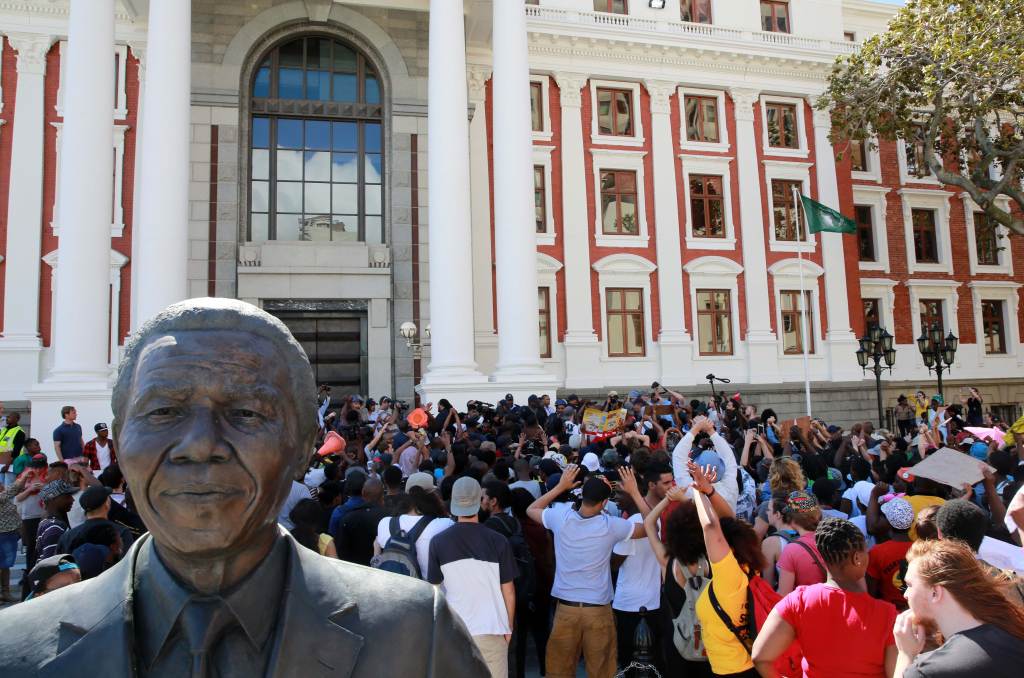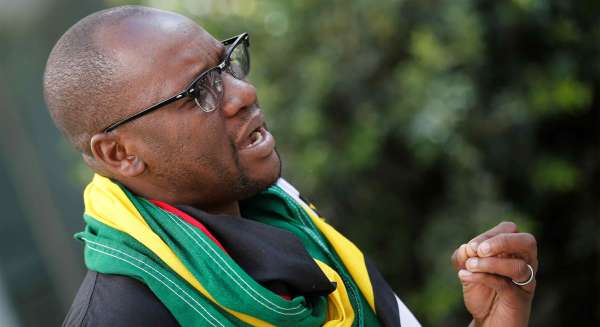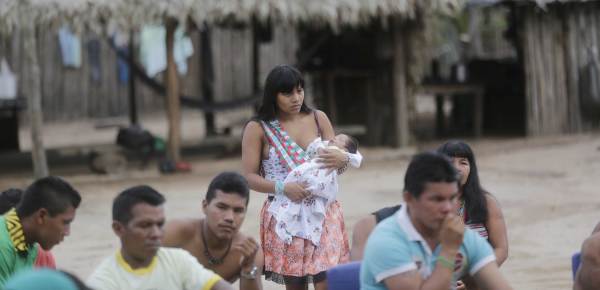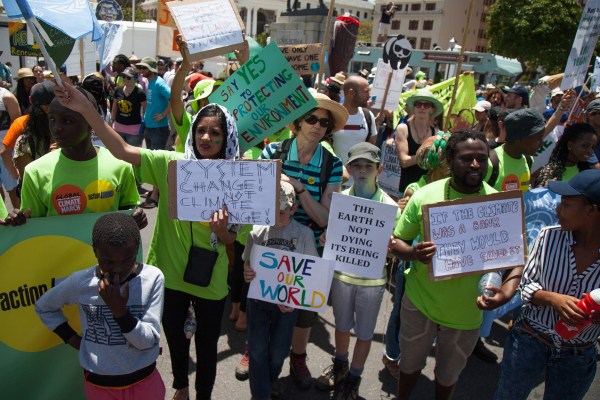 Nardus Engelbrecht/Gallo Images/Getty Images
Nardus Engelbrecht/Gallo Images/Getty ImagesThe right to protest has always been essential to movements for human rights and social justice. Recall the iconic scenes of protestors in the US civil rights movement and the women’s movement; South Africa’s anti-Apartheid movement; and more recent movements like Black Lives Matter, #FeesMustFall, and the Arab Spring. Protest is an inexpensive tool, and accessible to everyone. Through protest, marginalized communities can lift their voices, demand accountability and responsiveness from authorities, and raise awareness. The democratic ideal of rule by, for, and of the people is alive in protest.
Unfortunately, around the world there is a big gap between the promise of the right to protest, and the reality. But recently, in one courtroom at the tip of Africa, that gap was narrowed. South Africa’s apartheid-era Regulation of Gatherings Act (RGA) sets strict parameters for the size, type, and location of protests. In 2015, a group of activists from the Social Justice Coalition were accused of violating the RGA, for holding a peaceful protest outside the Cape Town mayor’s office two years earlier, in which they called for adequate sanitation services. After chaining themselves to railings at the entrance to the mayor’s office, the activists were arrested; their conviction was based on having failed to provide authorities notice of their gathering. (The RGA requires that “the convener of a gathering shall give notice in writing signed by him of the intended gathering.”)
In January, the Western Cape High Court in South Africa overturned their conviction. During their appeal, the activists—who are collectively known as #SJC10—argued that the RGA was unconstitutional, since section 17 of South Africa’s Constitution provides that “that everybody has the right to protest, peacefully and unarmed.” While they allowed that some regulation of protests is legitimate, the activists insisted that the RGA was excessively restrictive, because it effectively criminalizes protests if authorities are not given advance notice of them. They argued that their criminal conviction had a chilling effect.
Judge Tandazwa Ndita agreed: “The criminalization of a gathering of more than 15 on the basis that no notice was given violates s17 of the Constitution, as it deters people from exercising their fundamental constitutional right to assemble peacefully unarmed,” she ruled. “In my judgment, the limitation is not reasonable and justifiable in an open and democratic society based on the values of freedom, dignity and equality.”
In addition to the Constitution of South Africa, the court’s decision was based on essential principles in the International Covenant on Civil and Political Rights and the African Charter on Human and People’s Rights, both ratified by South Africa. The United Nations special rapporteur on the right to freedom of peaceful assembly and of association, the Open Society Foundation’s justice initiative, and South Africa’s Equal Education Law Centre all filed amicus briefs. Their support signals the importance of this case for international law more broadly, and provides a model for how international cooperation can help ensure protection of these rights around the world—including in similar cases from other international jurisdictions including Malaysia, the United Kingdom, Brazil, and the Inter-American Commission on Human Rights.
Philanthropy has an important role to play in ensuring that the legal frameworks regulating assembly and protest enable free expression and meaningful participation. This can mean supporting legal challenges to ensure that the promise of freedom of assembly is a reality for social justice activists. It can mean raising awareness of cases where organizations are being constrained from protesting, and making connections between to strengthen learning and solidarity. And it can mean investing in building organizations’ technical capacity and resilience. As activists around the world continue to push for change, they will continue to face obstacles to assembly and protest—so it’s essential for funders to provide the support that makes it possible for them to keep fighting.



